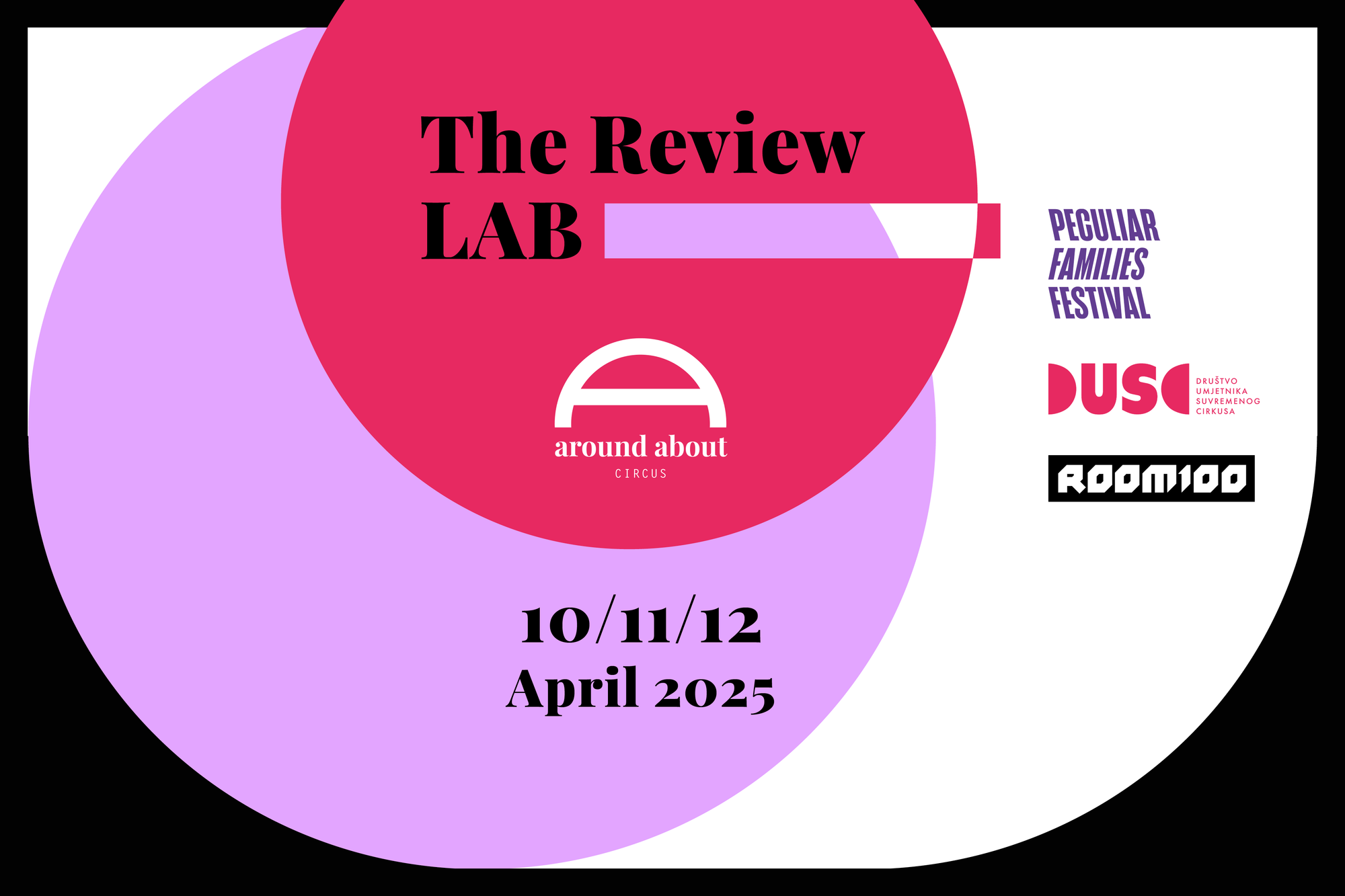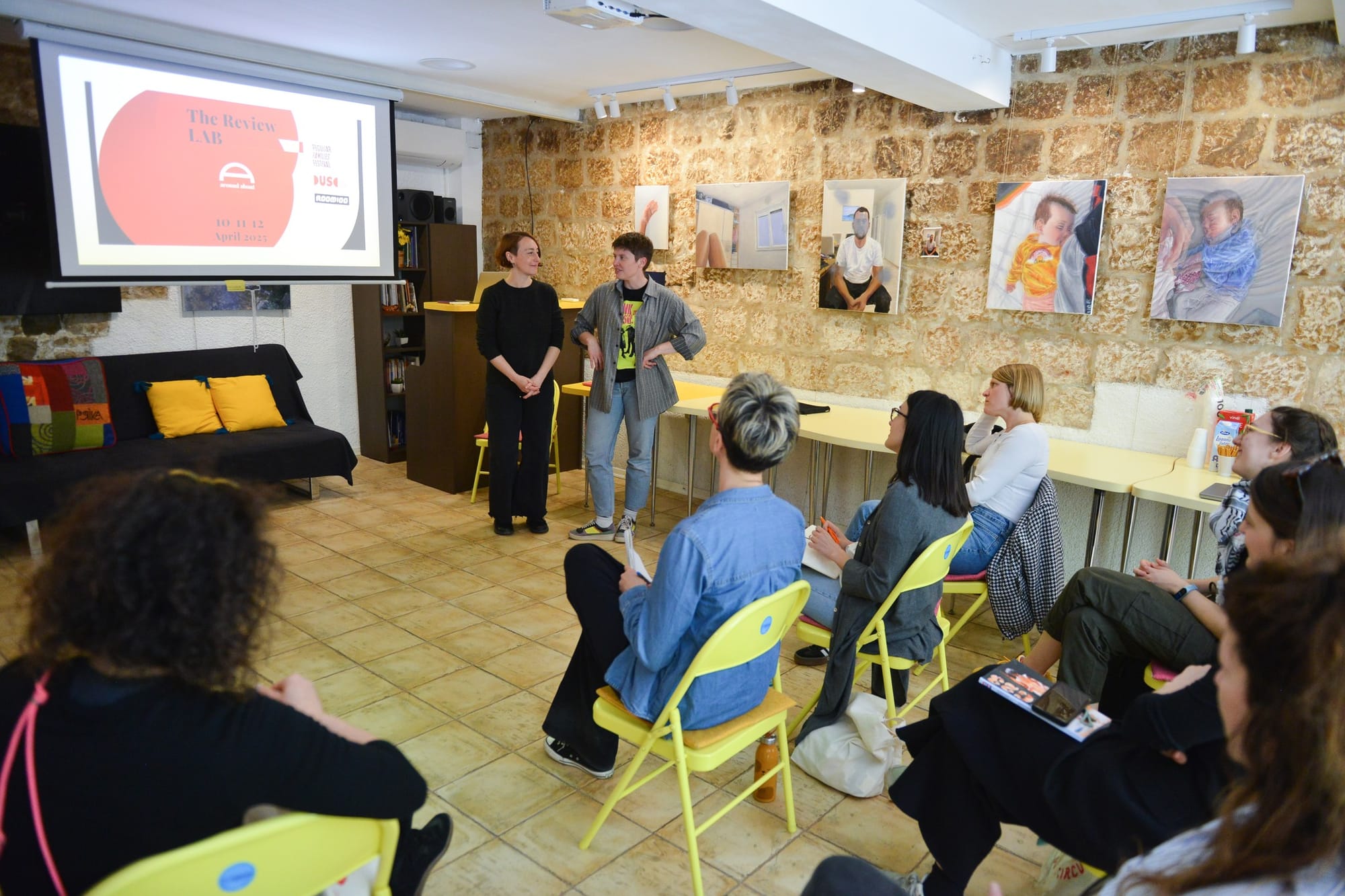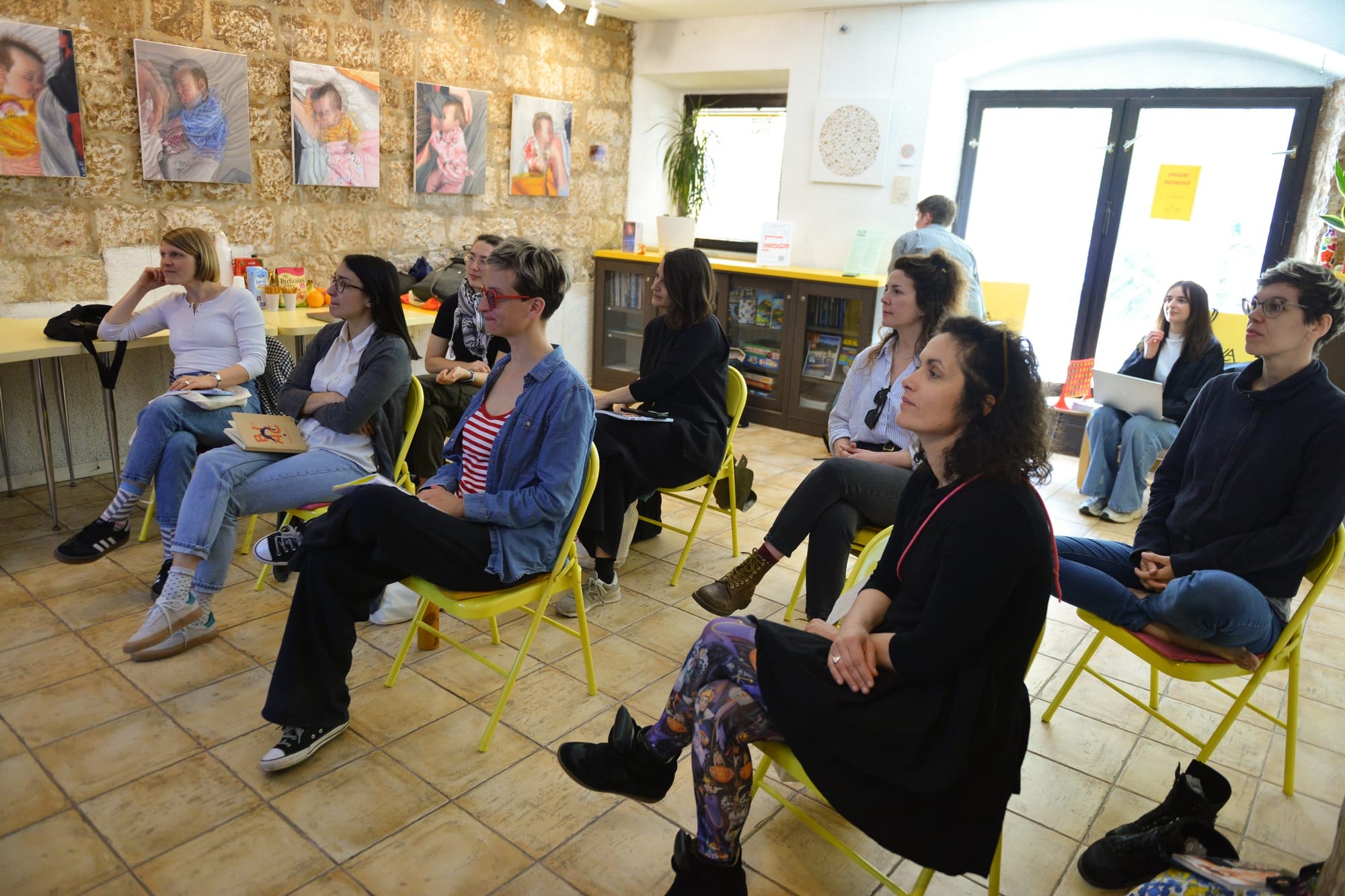Fragments: Decoding the Unconscious through Circus
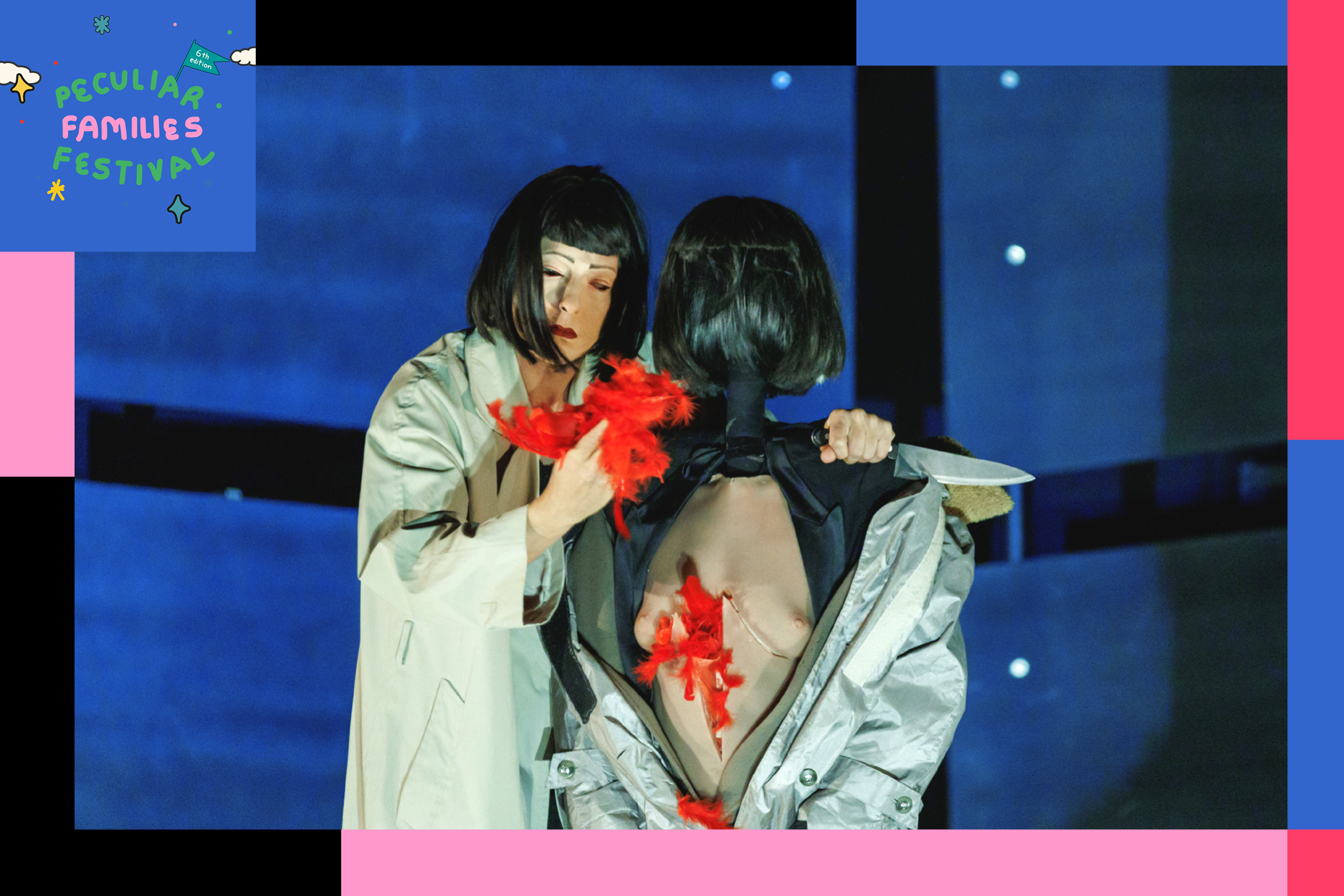
In Split, on April 18th, the Amphitheatre of Dom Mladih hosted the Spanish circusnext’s laureate 2024 company La Víspera's work-in-progress, Fragments. La Víspera, made up of Vinka Delgado, Diego Hernando, and Guillermo Leon, is so far the last circus collective staying in residence at Dom Mladih before the building begins its long-awaited renovation. I felt extremely glad to attend this particular performance, unfortunately, the last one organised by ROOM100 before the Dom Mladih building closure. Fragments has symbolised a fitting farewell to the Amphitheatre, whose doors will be inaccessible for the next few years.
What does a work-in-progress mean? A work-in-progress is generally a performance piece that is presented at a certain stage of development, usually to gather audience feedback to encourage further realisation. This allows the performers to engage the spectators in the process as creative partners, rather than passive viewers. I was lucky to see the almost finished performance, as Vinka Delgado said at the very end.
Why am I writing about this performance? What is it all about? It is hard to believe that this is still a work in progress and not a finished and complete work. From the very beginning to its end, I was enchanted and bewitched. If I had to describe the performance in one word, it would be: anticipation. I was in constant anticipation of what was coming next. Imagine my surprise when I later found out what ‘la vispera’ means - the eve or the evening before, a term that denotes the time immediately before an event, often with a sense of anticipation. And it was.
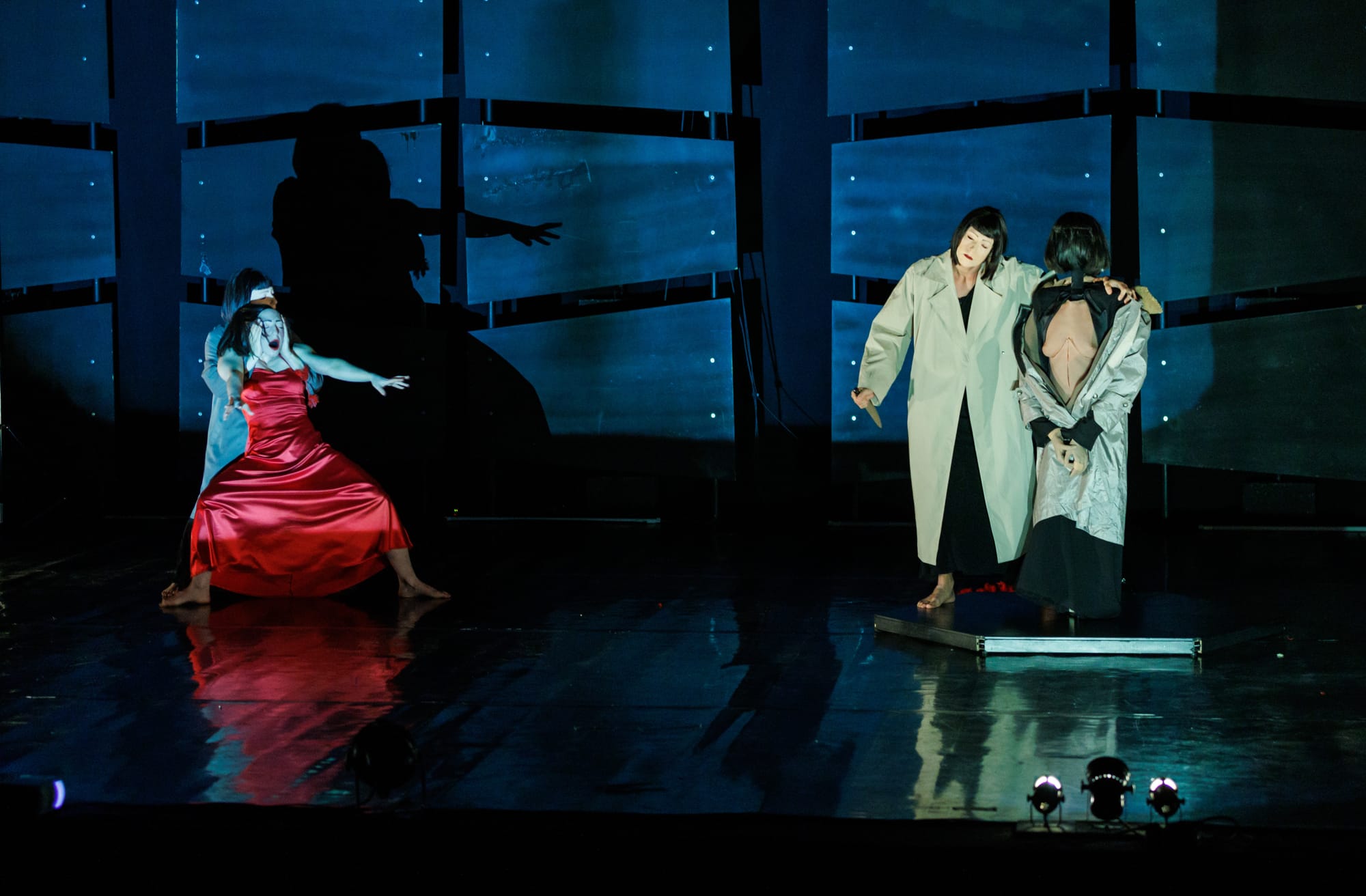
Fragments is characterised as a psychological thriller, which immediately intrigued me because I haven't seen theatre or circus performances of that nature very often. After watching the performance, I would also add the word ‘noir’, because if there's anything in art that can knock me off my feet, it's the atmosphere, and La Vispera has successfully achieved that. Throughout the whole performance, they managed to sustain a noir poetic atmosphere made of masks, light, and bodies.
I find the piece beautiful, intelligent, physical, humorous, and at times eerie. Finally, what is it about? Fragments is a story of constant change, an exploration of the body that is constantly evolving, falling apart, and reassembling through humour, poetry, and visual magic. The body transforms, faces multiply and disappear, and personalities merge and separate. The characters in the play create a world between reality and dream, where pain is broken into small pieces, into small fragments, and in these fragments it finds its relief.
On stage, we have three Vinkas; three different personalities, yet all united in Vinka's essence. All three Vinkas are mostly, but not always, in interaction with each other; on stage, they help or stand in the way of each other in a parade of surreal, almost science-fiction situations.
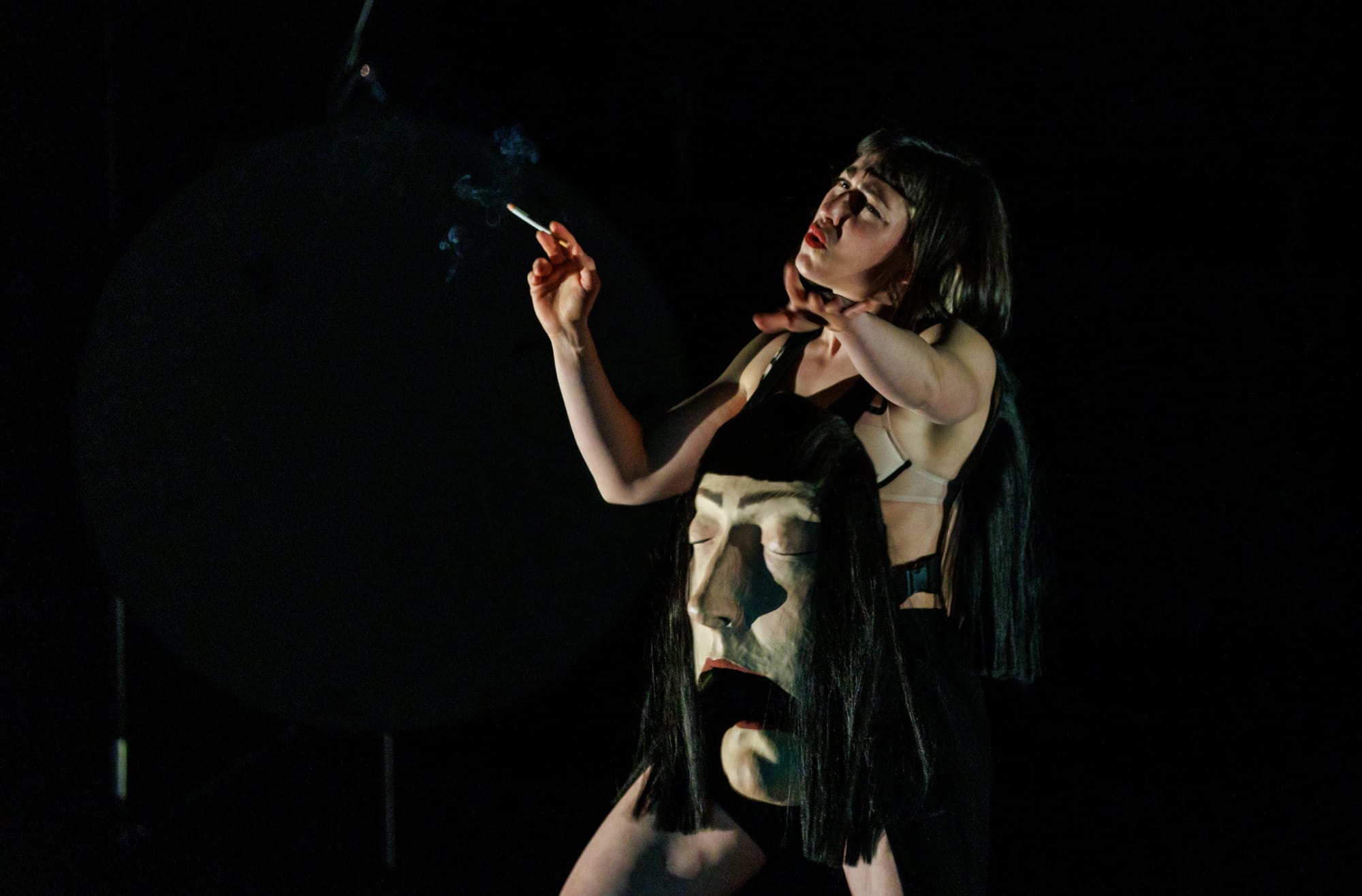
The main character, Vinka, is played by the phenomenal Vinka Delgado, who began her education in fine arts and continued her training in circus and theatre. However, her significant professional moment was the decision to devote herself to puppetry, mask-making, and costume-making. I have never seen such a fluid and natural combination of circus, dance, theatre, and puppetry. The masks and other props she uses are present, but not intrusive. She managed to personify the puppets and masks into living beings; I didn’t feel at all that they were artificial props, they were a part of her body and her personality. Through movement and physicality, she brought these puppets and masks to life to the level of a new character in the performance.
I especially liked her solo dance performances with dolls that hypnotised me. I don't know if I'm exaggerating, but it was a magical experience for me. I read somewhere on the internet that Fragments is reminiscent of David Lynch's films, which I agree with; however, I would add that this is a completely original idea of the show that has that specific, surreal, and dreamlike thread, which Lynch popularised. The solo dance scenes were quite challenging in terms of performance and consist mainly of pole dance elements in which Vinka uses a fixed prosthetic torso on a pole. The choreography is modern and breaks free from rules and patterns, but at the same time, it seems to have ancient druidic roots. I felt something primal, untamable, erotic, and emotional in these dance pieces, almost as if Vinka had transformed herself into the mythical Lilith.
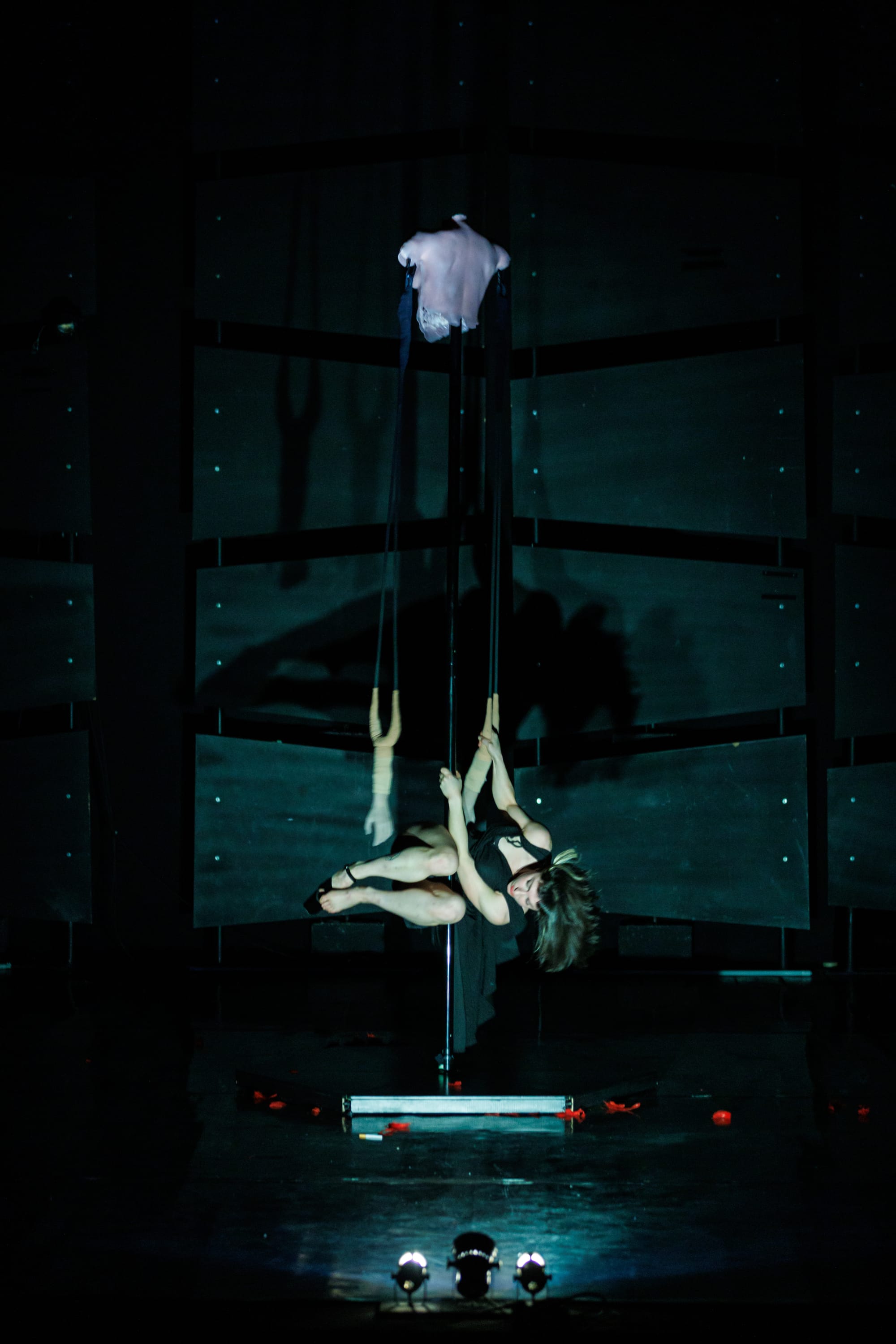
The entire performance is not exclusively mystical and dark, it is also wacky and humorous. Vinka is not a slave to one genre; instead, she inserts elements of humour through subtle dramaturgy and strong physical expression, which makes the performance absurd and humorous at times. In some parts, the performance and the characters are taken seriously and fatally, and in the next scene, they immediately mock and joke at their own expense. Vinka even places the body in anatomically abnormal situations in which she successfully combines the so-called weird with the so-called normal, where it is difficult to refrain from laughing.
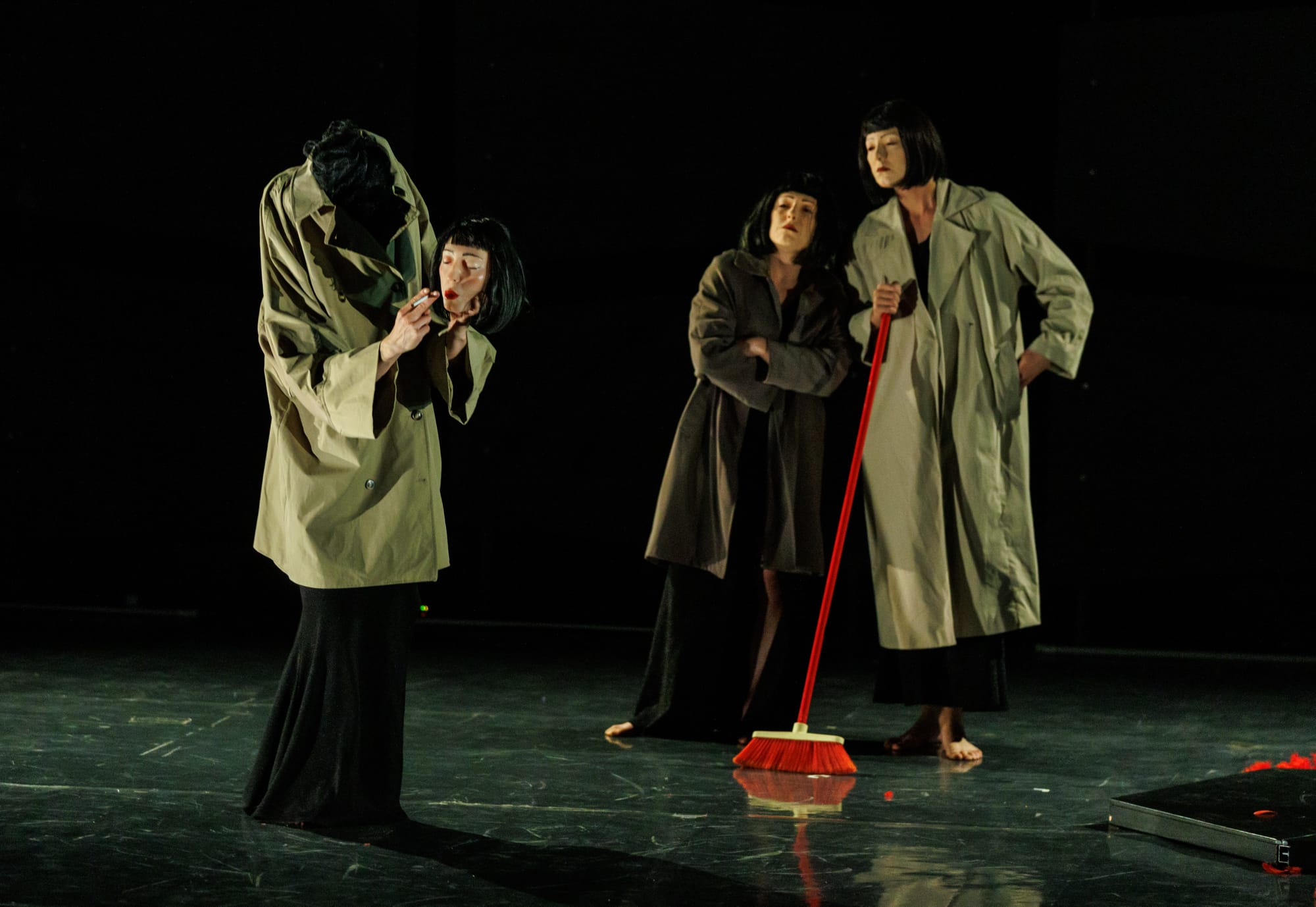
The performance is an experiment of playing with different identities, paradoxes, accepting our contradictions, and about how we can express ourselves emotionally through body and movement. Some moments brought me laughter and playfulness, and others brought chills and anxiety; as if this whole concept was Vinka's form of psychotherapy, her so-called Jungian shadow work. What is reality, what is a dream? What is an illusion? What are our memories? Is it even necessary to get an answer to these questions, or is it enough to just explore them and leave them alone, and surrender to the transitional moments and accept the inevitable and the unknown? Fragments proved to me that a person can be and can become a work of art that seduces and provokes with its very existence.
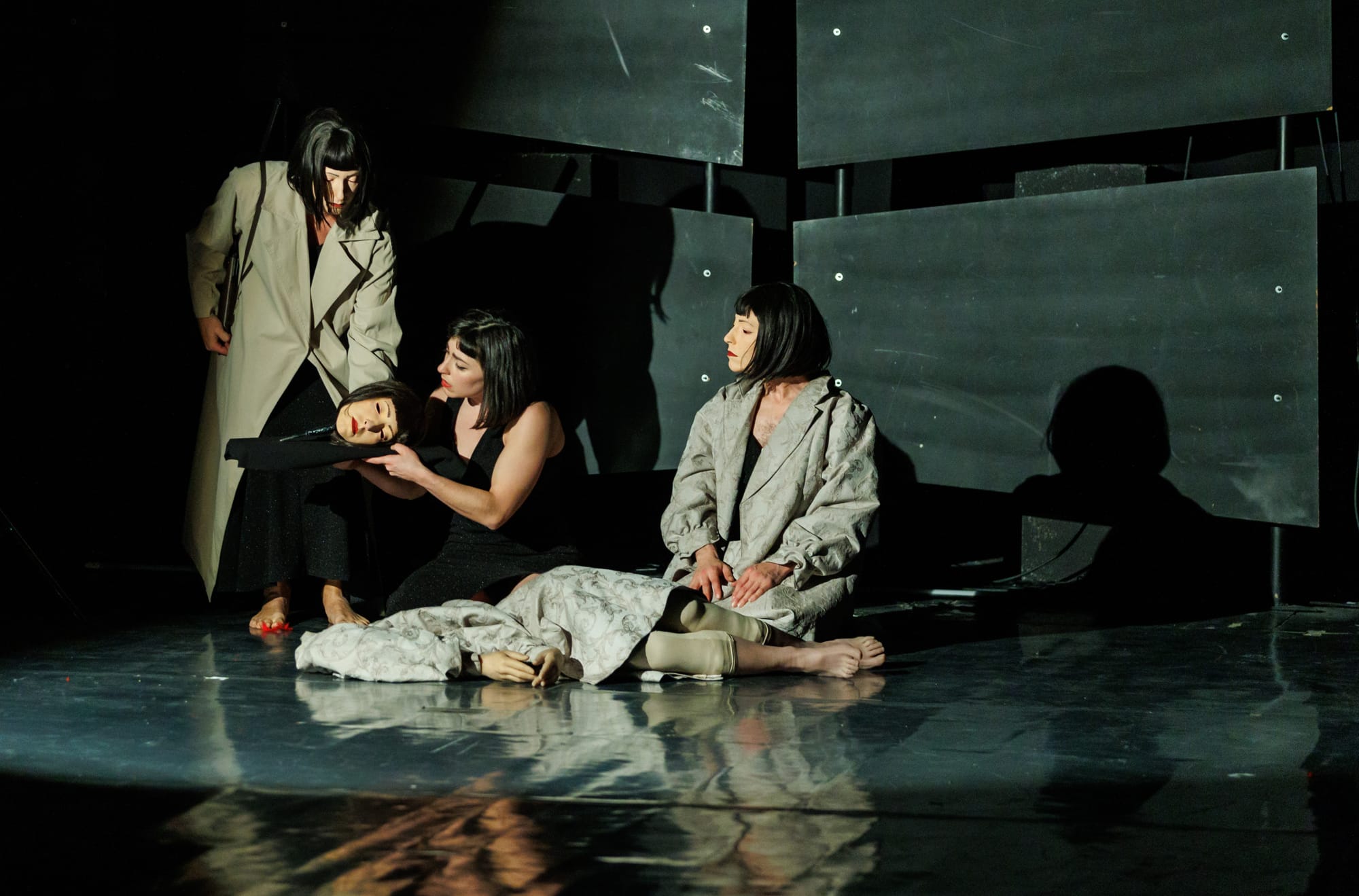
This review is published as one of the results of The Review Lab, a workshop held in Split by Around About Circus during the Peculiar Families Festival 2025 edition, thanks to DUSC and Room100.
To know more about the festival, read the other review by Mira Ursić, Muovipussi: a band from the year 3000. To know more about La Víspera, read the circusnext 2024 laureate interview by Valentina Barone
